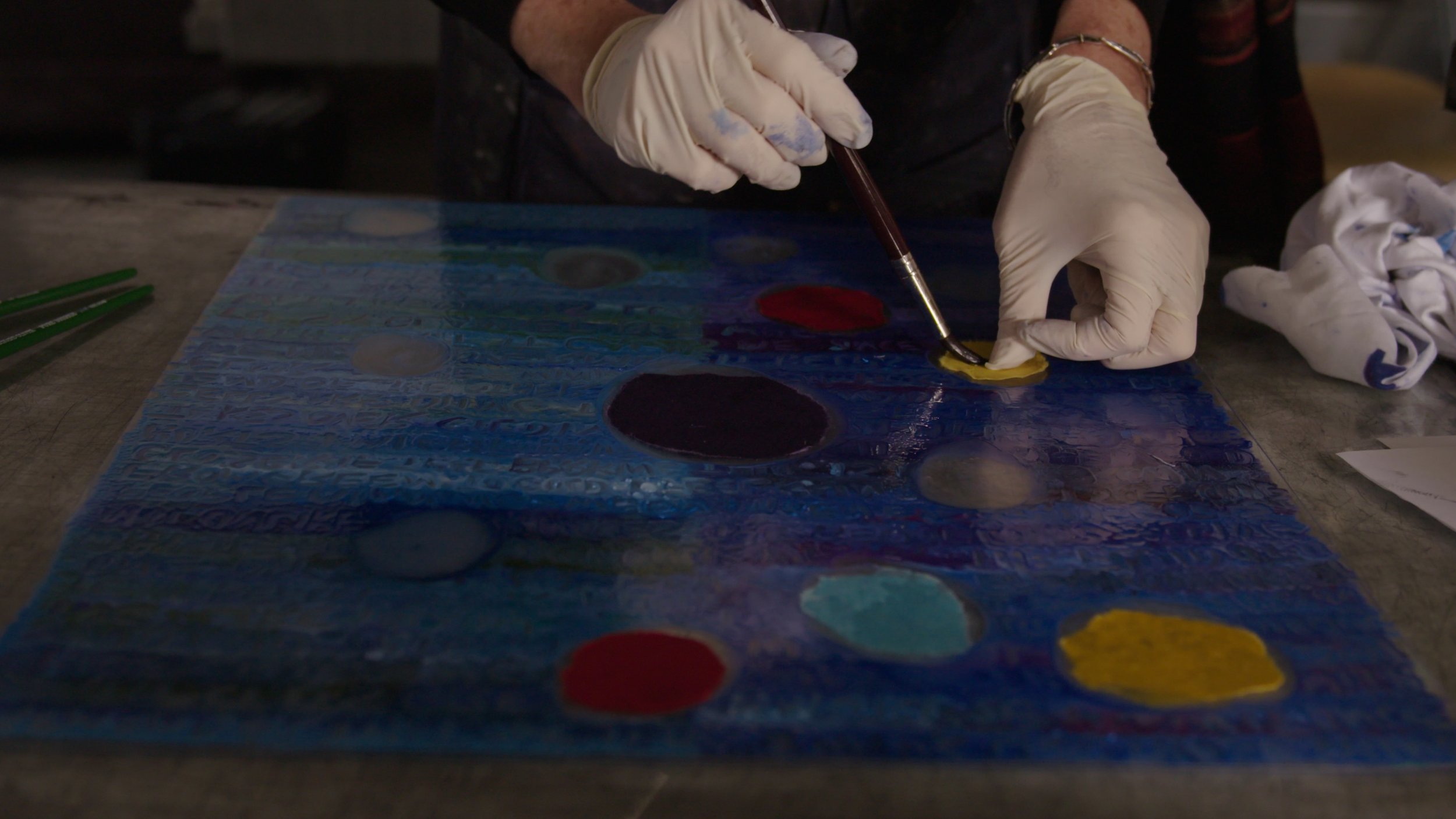Keys Bags Names Words is a quirky and inspiring lens portraying stories of the personal and global impacts of Alzheimer’s disease and other forms of dementia.
It follows a cohort of young scientists and artists from around the world as they harness every aspect of creativity, humor and compassion to lead the way towards hope and resilience.
Through a series of personal experiences, different people around the world share how they have adapted to a diagnosis of dementia. In turn, we see how they inspire artists and scientists to develop community-based solutions to foster connection and meaning.
Jill Harmon has been caring for her husband with dementia for fourteen years. “We met when we were teenagers at a dance,” she says. “I’m madly in love with him.” And though we experience Jill’s heartbreak and the demands of caring for Don in the late stages of the disease, we also see her resilience and the simple ways in which she and Don still meaningfully connect.
When Helen Rochford Brennan was diagnosed with early-onset dementia she isolated herself. “I didn’t tell anyone,” she says. Helen struggles, but also triumphs as she becomes one of the world’s leading advocates fighting against stigma and for the rights of people with dementia. “You really can have a high quality of life after diagnosis,” she says. She shows us how.
Karin Diamond, Artistic Director of Memoria, leads a theater group of people processing a dementia diagnosis. “The creative work sometimes allows people to connect to themselves,” says Diamond. Their stage productions work to reduce stigma and advocate for support.
Pianist and neuropsychologist, Catherine Jordan, explores why music often has such a huge effect on people with dementia.
David Loughrey, born with profound hearing loss, researches how improving hearing could have a meaningful impact on reducing cases of dementia worldwide.
Walt Dawson’s father developed Alzheimer’s disease when he was ten years old. Walt began an exhaustive letter-writing campaign that culminated in his testimony before the US Congress. As a policy expert today, Dawson draws on his life experience to drive better long-term care support for families. “We don’t really have a system that provides long-term services and supports in this country,” Dawson says. “I felt at that age that that was not right. That we could and should do better. And I still believe that today.”
Dana Walrath experienced caring for her mother with Alzheimer’s disease as an artist and medical anthropologist. “What you’re trained to do as an anthropologist,” she says, “is to be in another cultural setting and understand how the people in that society are thinking and being. Your job is always to meet them where they are.”
These young, networked leaders in science and medicine, policy, and the arts, employ knowledge, creativity and compassion to tackle one of the greatest global health challenges of our time. How do we better connect with our loved ones? How can we, as a society, transform to lessen stigma and be more inclusive? How can we shift our mindsets from fear, to hope and action? Keys Bags Names Words shows us a way.

